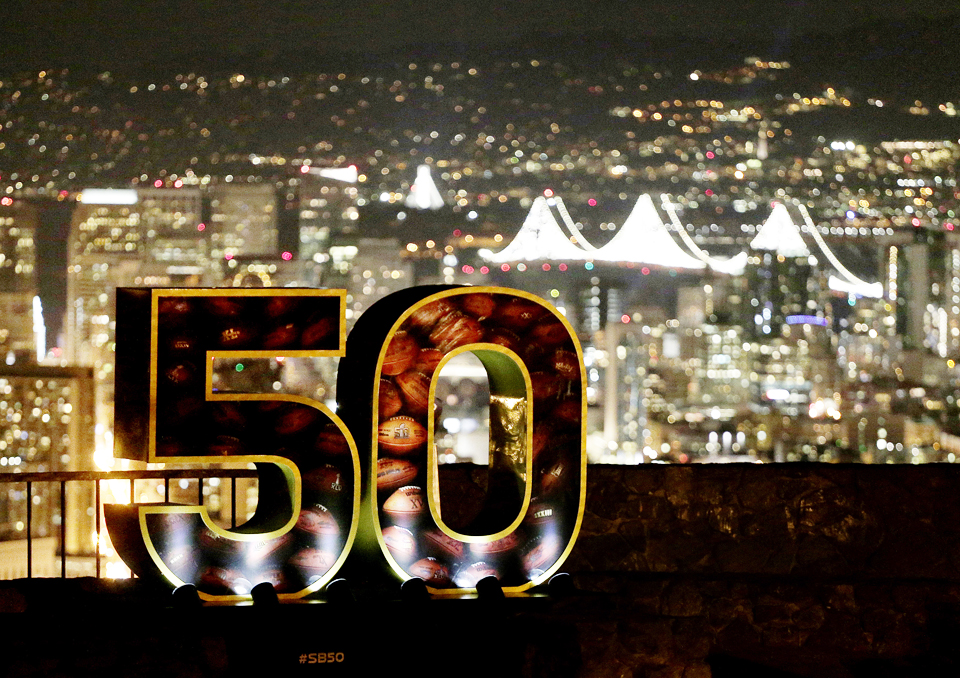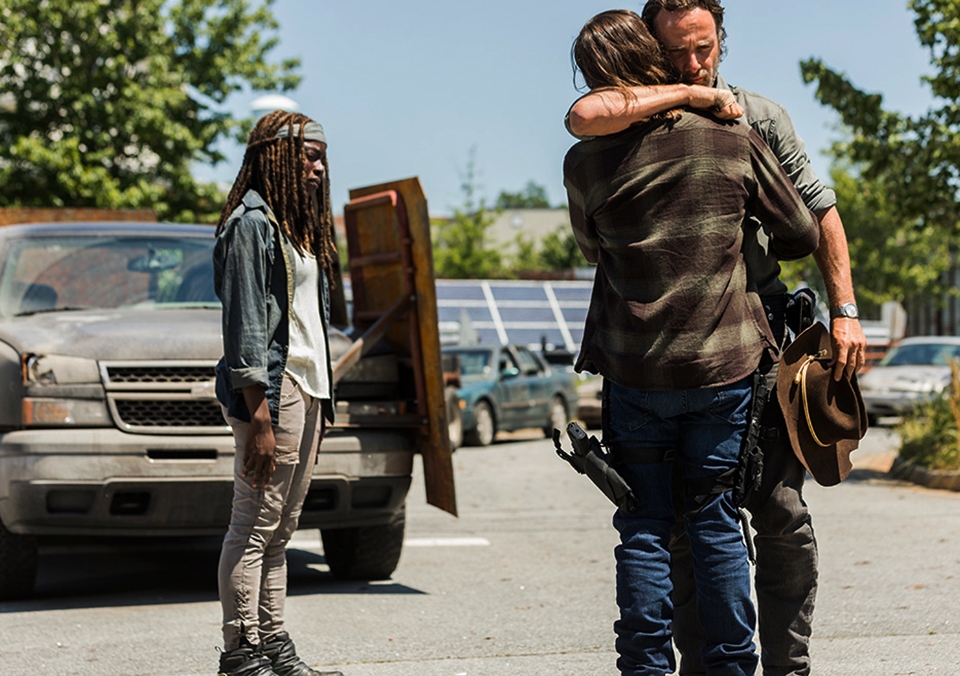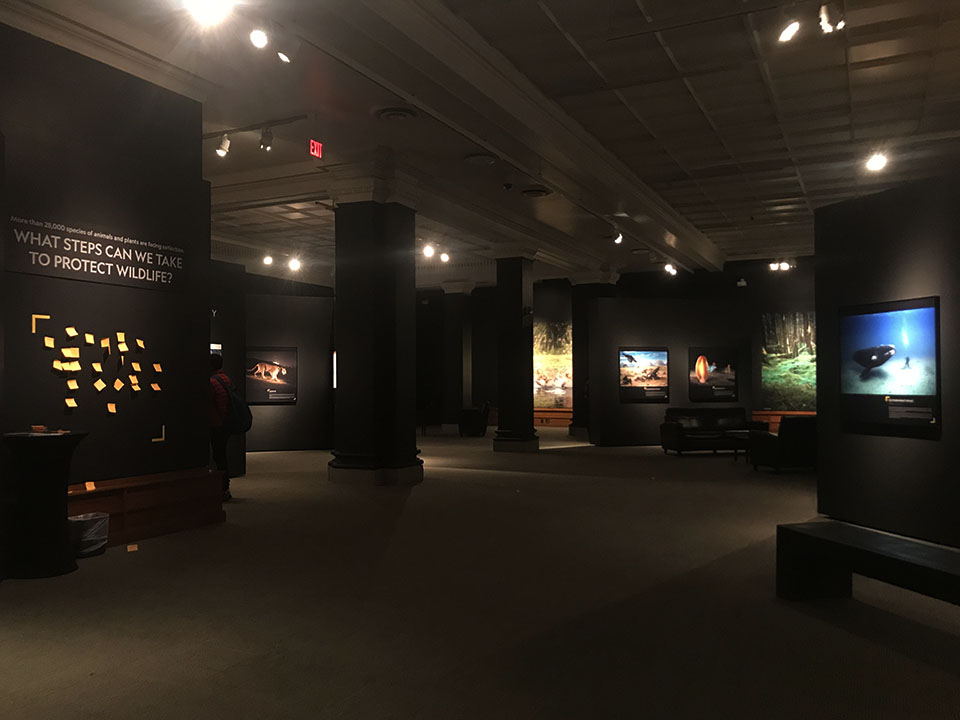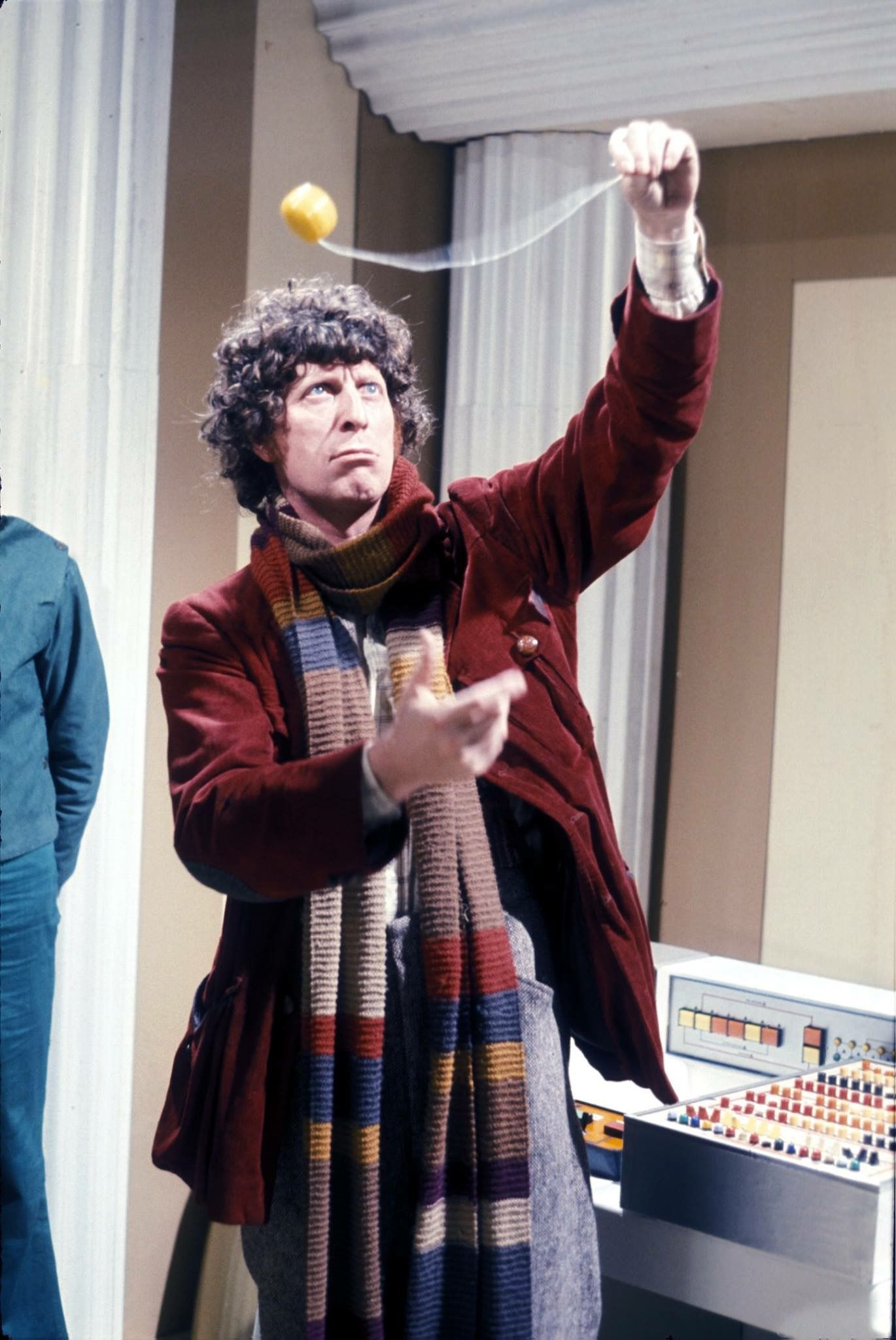
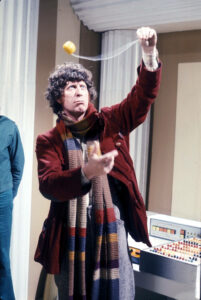
Tom Baker portrayed the Doctor from 1974 to 1981.
Ollie Gratzinger | Editor-in-Chief
02/20/20
A chilling new episode of Doctor Who hit the screen on Sunday night with “The Haunting of Villa Diodati,” featuring the return of a classic villain — the Cybermen. This marks the first appearance of the robotic killing machines since the tenth season finale in 2017, following showrunner Chris Chibnall’s marked trend of bringing back characters from previous seasons.
In honor of our throwback issue, we’ll take a trip back in time ourselves — no TARDIS necessary — to explore some of the best Doctor Who episodes of series past.
First Doctor: “An Unearthly Child” and “The Daleks” (1963) — William Hartnell made his debut as the Doctor in the 1963 pilot “An Unearthly Child.” The show was originally meant to be an educational program for families, using time travel as a way to explore famous scientific concepts and key historical moments. But it didn’t take long for the allure of science fiction to invade with the creation of the alien Daleks in the second serial of the show, aptly called “The Daleks.” These two serials are a must-see for anyone who wants to understand the humble roots of Doctor Who.
Viewers are introduced to the Doctor’s granddaughter, Susan (Carole Ann Ford), whose photo will one day occupy a place on a later incarnation’s desk. The special effects are campy and it’s very much a product of its time, but the actors, especially Hartnell, are passionate; it feels like they know they’re making history.
Second Doctor: “The War Games” (1969) — Marking Patrick Troughton’s last regular appearance of the Second Doctor, this serial sees the Doctor appealing to the Time Lords for help stopping a warmongering renegade. But in reaching out to them, he has to fess up to his own past offenses, including stealing the TARDIS prior to the show’s start. As punishment, he’s forced to regenerate and banished to 20th-century Earth, and his companions’ memories of him are erased.
Third Doctor: “Doctor Who and the Silurians” (1970) — Set against the backdrop of a cave deep beneath an English moorland, “The Silurians” dives headfirst into the 1970s with talks of nuclear power as the Doctor (Jon Pertwee), Liz (Caroline Shaw) and the Brigadier (Nicholas Courtney) attempt to facilitate peace talks between the humans of Earth and the Silurians, a reptilian race who ruled the planet long ago. With the Cold War moving into its détente period, the serial was especially timely and introspective in the way that all good science fiction tends to be.
Fourth Doctor: “The Deadly Assassin” (1976) and “City of Death” (1979) — The Fourth Doctor (Tom Baker) is the most familiar Classic Who protagonist to American audiences, as well as the time-traveler with the longest tenure; Baker played the part for a whopping seven years. For that reason, he gets two best-of picks.
“The Deadly Assassin” comes toward the end of the show’s Hinchcliffe era, characterized by darker themes and gothic-horror-esque episodes produced by Philip Hinchcliffe from 1974 to 1977. Viewers are treated to a terrifying version of the Master (Peter Pratt), the Doctor’s oldest friend and gravest enemy, who has used up all of his regenerations, leaving him with a frightening, zombie-like appearance. The Doctor is framed for the murder of the Gallifreyan president, and has to prove his innocence before it’s too late.
On a lighter note, “City of Death” showcases the Doctor’s penchant for comedic timing as the Doctor and his Time Lord companion Romana (Lalla Ward) try to stop an alien from stealing the Mona Lisa.
Fifth Doctor: “Caves of Androzani” (1984) — Caught in the middle of a war over the life-saving drug Spectrox, the Fifth Doctor (Peter Davison) goes out with a bang. He and his companion Peri (Nicola Bryant) are exposed to the drug in its deadly raw form, and so the Doctor commandeers an alien’s spaceship and crashes it, setting off into the caves of Androzani to obtain the cure before they both succumb to its illness. Ultimately, there’s only enough left to cure one person; the Doctor administers the antidote to Peri, who is revived and stays by the Doctor’s side as he regenerates into his sixth incarnation, portrayed by Colin Baker.
Sixth Doctor: “Trial of a Time Lord” (1986) — The Sixth Doctor (Colin Baker) may not be a fan favorite, but with his colorful coat and sassy disposition, he earned a special place in quite a few hearts. His most famous serial is the 14-part “Trial of a Time Lord,” in which he finds himself suddenly transported to Gallifrey to stand trial for crimes of interference and eventually genocide — most of which he doesn’t remember committing. Using the Matrix, a cool piece of Time Lord kit, the prosecuting Valeyard (Michael Jayston, Geoffrey Hughes) replays the events leading up to the Doctor’s trial, but the Doctor suspects the evidence has been altered. The serial also sees the departure of Peri, who is rather abruptly replaced by Mel (Bonnie Langford).
Seventh Doctor: “Remembrance of the Daleks” (1988) — The Seventh Doctor (Sylvester McCoy) and his lovable juvenile delinquent companion Ace (Sophie Aldred) travel back in time to 1963, where some iconography from “An Unearthly Child” are revisited. The Doctor and Ace have to keep an ancient Time Lord artifact called the Hand of Omega from falling into the possession of the murderous Daleks, who only become more of a thorn in the Doctor’s side when the show is revamped into its new (and current) version a few decades later.
Ninth Doctor: “The Empty Child/The Doctor Dances” (2005) — With gas-mask-wearing zombies and a backdrop of London during the Blitz, this two-parter represents the moment where the otherwise endearingly campy season gets creepy. The Ninth Doctor (Christopher Eccleston) and Rose (Billie Piper) team up with Captain Jack Harkness (John Barrowman) to investigate reports of an eerie child donning a gas mask and asking for his mother. The episode concludes with the Doctor and Rose sharing a romantic dance while Glen Miller’s “In the Mood” plays in the background.
Tenth Doctor: “Silence in the Library/Forest of the Dead” (2008) — This two-part adventure boasts the first appearance of soon-to-be series regular River Song (Alex Kingston) as the leader of an archaeological expedition to a planet called The Library. Her actual identity won’t be revealed for another three years, but she still makes quite the impression on the Tenth Doctor (David Tennant) when she risks her life at the end of “Forest of the Dead,” saving Donna Noble (Catherine Tate) and the thousands of other consciousnesses uploaded to the Library’s computer database.
Eleventh Doctor: “A Good Man Goes to War” (2011) — The timeline of the Eleventh Doctor (Matt Smith) features some of the more challenging plots to follow, in large part due to Steven Moffat’s intricate writing style. But “A Good Man Goes to War” weaves together a synthesis of many of the sixth series’ complex stories, resolving the cliffhanger in “The Almost People,” providing an explanation for the strange woman seen by Amy Pond (Karen Gillan) throughout the season and revealing the true identity of the enigmatic River Song.
Twelfth Doctor: “Heaven Sent” (2015) — The penultimate episode of season 9 takes the lovable albeit moody Twelfth Doctor (Peter Capaldi) to his wits end. Having just witnessed the death of his best friend and companion Clara Oswald (Jenna Coleman), the grieving Time Lord finds himself trapped in a frightening and seemingly inescapable castle, surrounded by deep waters littered with sunken bones. He’s being chased by a haunting creature called The Veil, who can only be slowed down as the Doctor reveals to it secrets that had never been told before.
The episode concludes with the Doctor manipulating time to grant himself a few billion extra years; he uses this time to punch through a seemingly unbreakable wall of Azbantium — a mineral 400 times harder than diamond — all while reciting a Doctored-up version of the Brothers Grimm fable The Shepherd Boy. He emerges from the Azbantium with bloody knuckles and one heck of a bone to pick with whoever trapped him in the first place.
There are, of course, hundreds of other episodes and specials that deserve some love. Paul McGann’s 1996 TV movie Doctor Who featured the Eighth Doctor grappling with the gruesome and oft-referenced Time War, bridging the gap between the classic and new era; the first three Doctors met for an adventure in 1972; and the Twelfth Doctor and River Song lived in domestic bliss for 24 years at the end of the 2015 Christmas special.
And so far, the heartwarming — and heartbreaking — stories of the Thirteenth Doctor (Jodie Whittaker) promise to outlive their era, too.


